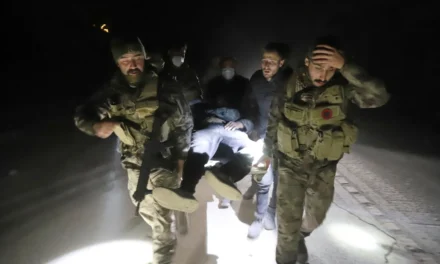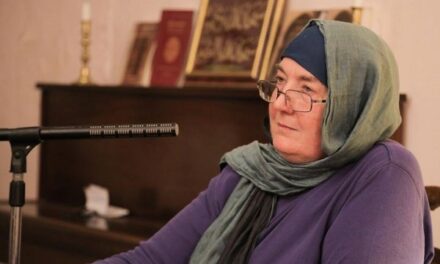
Throughout the past decade, I’ve worked with a variety of MSAs (Muslim Student Associations) in different capacities. My first days as a Muslim were spent as an undergraduate, stumbling through leadership positions in my first MSA and largely failing to bring about good programming or developing a cohesive community.
After graduating and working with other Muslim organizations, I shared what lessons I was learning with my former MSA and acted as an advisor for many years before transitioning to a paid position as the Muslim Life Coordinator at different private university. Now, I serve as the president of yet another MSA in the West, though with a much different skill set than my first time around.
From my experience, no two MSAs – whether at a university, college, high school any other educational institution — are the same. They differ in size and demographics, operate in different institutional contexts, and are incorporated into local Muslim communities to differing extents. However, working with different MSAs and with Muslim organizations more broadly, requires attention to similar elements. Below are my reflections on seven important things that can make or break an MSA.
#01 – Community Support
Community support is integral to developing a vibrant Muslim community on campus. An MSA that is supported by the larger Muslim community in a given area can fundraise for better events, utilize space in masajid and other community spaces, and benefit from having a community that appreciates the hard work students do.
However, communities can also be toxic. In some cases, I’ve seen communities actively persuade young Muslims to avoid their MSA. In other cases, conflict within the community may find its way onto the university campus. This could produce a divided community and negatively affect students who may not be native to the broader Muslim community in that area. So, students must gauge how involved they become with their local communities.
#02 – Strong Personalities
Many organizations have someone who has a very strong personality. This isn’t inherently positive or negative. A strong leader can provide an ambitious vision and have the skills required to achieve the fulfillment of that vision. However, some strong personalities may stifle creative thought and prevent others from being more engaged. It seems every masjid has “that one uncle” who only supports his own ideas and seems to berate every idea that isn’t his. Some might be able to roll their eyes at such antics, but others may feel so frustrated and drained that they retreat entirely.
If said personality is in an organization you run, the best thing to do can be to acknowledge their contributions and be intentional in giving others the opportunity to be involved. However, you might find that this strong personality occasionally needs to be confronted. Not only does this require a lot of courage, but also restraint. These individuals can be great assets, but they have to be engaged in a way that allows them to feel heard but also prevents them from trampling others.
#03 – Religious Diversity… or Divisions
Few MSAs are homogenous in the way they understand and experience Islam. The terms “conservative” and “liberal” can be revealing as to where the line between too-religious or not-religious-enough is for any given member of the MSA. Not only are the students of the MSA products of their upbringing, but they are also subject to ideological battles being waged in American society. Many MSAs are being confronted with LGBTQ issues (sometimes from within their own membership), stances on controversial topics such as abortion and other political skirmishes happening at the time.
The easiest way to handle religious diversity is perhaps the most prophetic: Commit the MSA to being as inclusive as possible. This does not necessarily mean sanctioning impious or unvirtuous behavior, but rather emphasizing that all are welcome in the community regardless of where they are on their path to being better Muslims (or just better people, for those non-Muslim members of the MSA). Just as the Prophet welcomed those less-than-perfect Muslims into his community, the MSA can do the same.
#04 – Lack of Organizational Skills
This is particularly important for MSAs whose leadership comprises young college students, but I’ve come to find that it applies to most Muslim organizations. Young students must be taught basic organizational skills to succeed. Many students don’t keep a calendar, have a contact list of important people or don’t know how to organize their notes and data. Despite there being a host of different organizational tools available, students have to learn to build the habits necessary to benefit from those tools. Every MSA should have a leadership workshop hosted by an experienced community organizer. That person doesn’t have to be a Muslim – the university probably has a ton of staff who can help.
#05 – Gender Issues
Nearly every MSA I’ve worked with has struggled with the question of gender relations – and for no good reason. Outside the confines of an MSA event, male and female students are fully integrated on campus (unless you attend a single-sex institution). Even the shyest brother or sister has worked with the opposite sex on at least one class assignment. The mental barrier Muslims put up regarding gender is entirely constructed, and it only operates within the confines of a Muslim space.
However, just because gender integration is the norm on universities doesn’t mean every individual is comfortable in mixed settings, depending upon the context. A halaqa about the Prophet’s life may not induce social anxiety for these shy individuals, but a talk on relationships just might. It’s important to keep in mind how students may feel, but also recognize that coercing students into gender-segregated spaces may not only inspire resistance but may produce greater gender inequality.
#06 – Content or Connections
When we think of organizational work, we often imagine leaders sitting around a table in a closed setting, coming up with ideas for programs. What kind of social event should we hold? What are our educational goals? What charity work do we want to do? What causes will we support? Who will we partner with? How can we best publicize our events? While these concerns over content are warranted, they don’t substitute for connecting face-to-face with your student community.
In working with other university Chaplains, I learned they spend much of their time grabbing coffee with individual students. This is because developing relationships is far more important for spiritual development and community building than simply hosting good events. Though university students often have little time, committing to at least one conversation a week with another member of your community can go a long way to making a more successful MSA.
#07 – Why We’re Working
Finally, it is very easy to get lost in the minute details of event planning and organizational development and forget why you’re involved in the MSA in the first place. If you set all the process and procedure aside for a minute, remember that you’re an MSA leader to build Muslim community on campus. You have Allah and His Messenger as a guide, and all you know about Islam will serve you as a leader or participating member of the community. It should guide the events you host and the way you interact with people. Recall this mission before every meeting, remind your fellow Muslim brothers and sisters, and you will feel much more confident in your work as a Muslim MSA leader, member or supporter.
Dilshad Ali
Originally published as 7 Things That Can Make or Break MSAs (Muslim Student Associations)
















